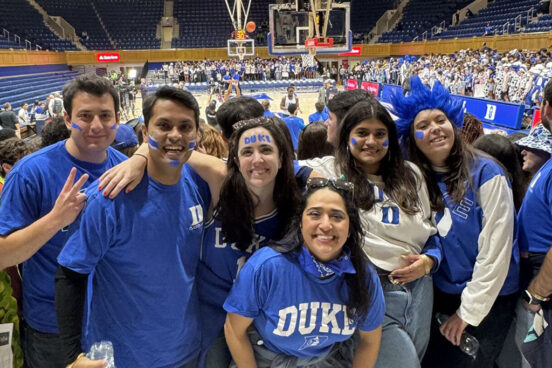Duke Daytime MBA Student Blog

Fuqua on Board
This is the final week of the MBA for me. Looking back, one of the most memorable experiences has definitively been Fuqua on Board (FoB) in which I participated throughout my two years here. FoB also celebrated its tenth anniversary last year, and was redesigned in some big ways during this past academic year. So that was reason enough to dedicate a blog to it. Therefore, I gathered input from some students, staff, faculty, and non-profit board members on what they perceive to be the program’s secret to success. I am grateful for the support from Dr. Thomas Keller, Meredith Driscoll, Ruth Tolman, and Darlene Ritter.
What is FoB?
FoB provides students with the opportunity to work with a non-profit Board of Directors from the local community. Students also develop a project with a real impact for the organization, thereby enhancing the reputation of Fuqua. Very often, these projects involve strategy formulation, corporate governance enhancements, or developing a fundraising policy.
Why does FoB exist?
It provides a way for students to gain first-hand experience about non-profit corporate governance. This knowledge is a critical part of educating future business leaders in practical, ethical behavior in challenging situations. As for the participating non-profit organizations, they receive a fresh pair of eyes and a head full of ideas for their operations. My project was the organization of a board and management retreat to enhance collaboration and gather input for a review of the organization’s 5-year strategy.
How does FoB work?
Students must apply to the program and are chosen through acompetitive process. Students rank the boards that they’d like to join, in order of preference, and then they’re placed with an organization. Typically, students are paired up with a board member who has volunteered to be their mentor and act as primary contact and facilitator. Whenever schedules permit, the students attend regular board meetings and board committee meetings. Program directors from Fuqua provide regular feedback channels, networking events, and expertise on difficult situations.
What do non-profits expect from FoB?
The expectation is that students have the courage to ask tough questions, as well as bring concepts from the classroom to the board. This can help enhance how the non-profits fulfill their mission. Since for-profit and non-profit organizations are distinct in many aspects, it is very fruitful to combine knowledge and skills from both sides.
What are the challenges for FoB?
Students with a busy academic schedule and little or no board experience can sometimes be overwhelmed by overenthusiastic boards. This can lead to mutual expectations that would be hard to fulfill. FoB coaches and staff therefore organize workshops and networking events for all parties to achieve realistic expectations and effective cooperation.
What’s new at FoB?
Fuqua on Board was reorganized during this past summer in many important aspects.
- The program management was moved under the central Fuqua function of ‘Student Life’.
- There is now a student who serves as project-lead (Meredith Driscoll).
- There are also second-year coaches (like me) who served as active FoB students the previous year.
- The engagement period has changed from one academic year to the calendar year.
All of these measures aim to ensure that knowledge is accumulated and passed on over the years, that FoB is more tightly integrated into the life of Fuqua, and that non-profits can benefit from the cooperation according to their planning period.
How did I personally profit from Fuqua on Board?
As an international student, it was even more important for me to get out of the venerable walls of Fuqua and meet people in the community who are exemplary in their commitment to making Durham as best as it can be. Had I not done this, I would have missed out on a significant part of my Fuqua experience — listening to and learning from non-Fuquans.



